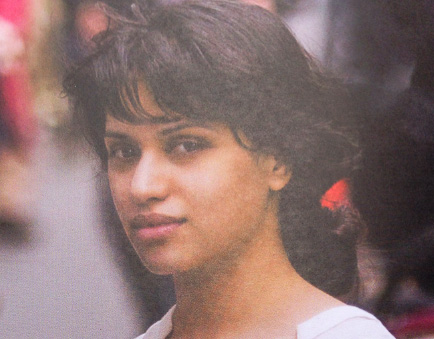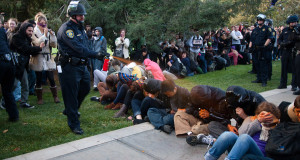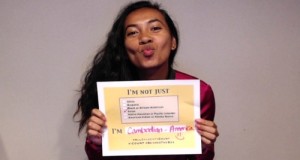Having grown up in New York City, Caritas Doha rationalized her lack of a driver’s learning permit by saying that a true New Yorker only needed a MetroCard.
A MetroCard, though, wasn’t a substitute for Doha’s lack of legal state identification.
“I felt like all my friends, but there were differences,” she said. “I would feel anxious every time I walked into an airport or a government office. Feeling secure is such a privilege.”
Doha, 24, is one of an estimated 11.7 million undocumented immigrants living in the United States, according to a Pew Research Center report in 2012.
Like Doha, many arrived in the United States as children, and through the years, they struggled to reconcile their American upbringing with the fact that the nation is not legally their home.
A 2012 executive order called Deferred Action for Childhood Arrivals (DACA) allows undocumented immigrants to get some legal freedoms provided they meet the following:
- arrived in the United States before age 16
- be younger than 31 before June 15, 2012
- have lived in the United States since June 15, 2007
- were in the United States without documentation on June 15, 2012
- are attending or have graduated high school; getting or have a general education development (GED) certificate; have been honorably discharged by the armed forces
- are not a convicted felon, have not committed misdemeanors, and are not a national security or public safety threat
- be in the United States when requesting DACA.
Source: Department of Homeland Security
Today, these young people – the subject of various legislation offering them a path to documentation – have the opportunity to obtain temporary protection from deportation through a 2012 executive order by President Obama called Deferred Action for Childhood Arrivals.
The path to this status is not easy, though, and while life-changing for many, DACA is not a permanent remedy.
Doha, who came to the United States from Bangladesh at age 2, said she realized the full consequence of her undocumented status during a conversation at her high school guidance counselor’s office where college plans were discussed. She didn’t have answers to questions about visas, Social Security numbers or her parents’ residency documentation.
It didn’t help that Doha attended Stuyvesant High School, one of nine specialized New York City public high schools known for their academic rigor and competitive students. As her classmates were accepted to Ivy League schools, Doha did not at first apply for admission to college because she felt hopeless about her situation.
She later applied to and attended the City College of New York, where she studied political science and creative writing. According to the College Board’s website, no law prohibits undocumented students from applying to college, although institutions can deny them admission. Financial aid, though, is harder to get since U.S. citizenship is required in most cases to qualify.
Doha said her South Asian parents expected her to achieve the kind of success they believed bringing her to the United States would make possible, but she said they had no clue about the Common App, an online one-stop college application form used by more than 500 universities and colleges, or the FAFSA, the Free Application for Federal Student Aid form.
“I faced incredible amounts of pressure from them, without any guidance or support for navigating the college process,” she wrote about her parents in a blog post earlier this summer for Sakhi for South Asian Women, where she now works.
Sakhi is a domestic violence prevention nonprofit group that caters to South Asian women in the greater New York City area. Doha became involved with Sakhi as a volunteer in 2009, and now she works through Sakhi to help undocumented South Asian girls like her apply for DACA status.
The DACA program gives people who emigrated to the United States without documentation as children and who meet certain requirements two years before action can be taken on their presence here. Although DACA does not provide legal status, it allows people who are eligible for it to obtain a Social Security number and work authorization.
Doha says people mistakenly think DACA only benefits Hispanics. But it applies also to low-income South Asians, many of whom are undocumented and are unaware of the opportunity.
She said immigration is a taboo topic among South Asians; many view being undocumented as signaling a class difference. “Many South Asians don’t think DACA can help them,” said Doha. “In our community, it’s hard to explain that you’re not undocumented through any action of your own. The word ‘illegal’ is such a nasty term.”
Doha said it’s important for trusted community organizations such as Sakhi to spread the message about DACA .
“The New York City government has put $18 million towards DACA outreach, but it can’t come from places like that because no one trusts them,” she said. “Part of it is just getting the conversation to happen.”
Doha said she has yet to help anyone apply for DACA, but she hopes someone will reach out soon. “I want to remove the shame of being undocumented.”
Doha can draw upon her own experience successfully applying for DACA when she helps her future clients. She received DACA status earlier this summer, but said she started the application process the day the order was issued in 2012.
Doha said applying for DACA was tedious; as it involved filling out paperwork and providing proof of address, bank statements and payroll stubs that undocumented people tend not to have.
Despite the long process, Doha knows first-hand that obtaining DACA’s protection is worth it.
“It’s the kind of happiness that you can only feel when you’ve been deprived of it for so long,” she said. “The very thing that defined so much of your life plans – this giant obstacle – is just gone.”
For the first time in her life, Doha has a Social Security number and a legal job, and she is thinking of applying to graduate school. Says Doha: “All the things I had hoped for so long, I can make them a reality.”
More information about applying for or renewing DACA can be found here, at the official website of the Department of Homeland Security.
Follow @neha_ramani on Twitter.
 VOICES Publishing from the AAJA National Convention
VOICES Publishing from the AAJA National Convention






